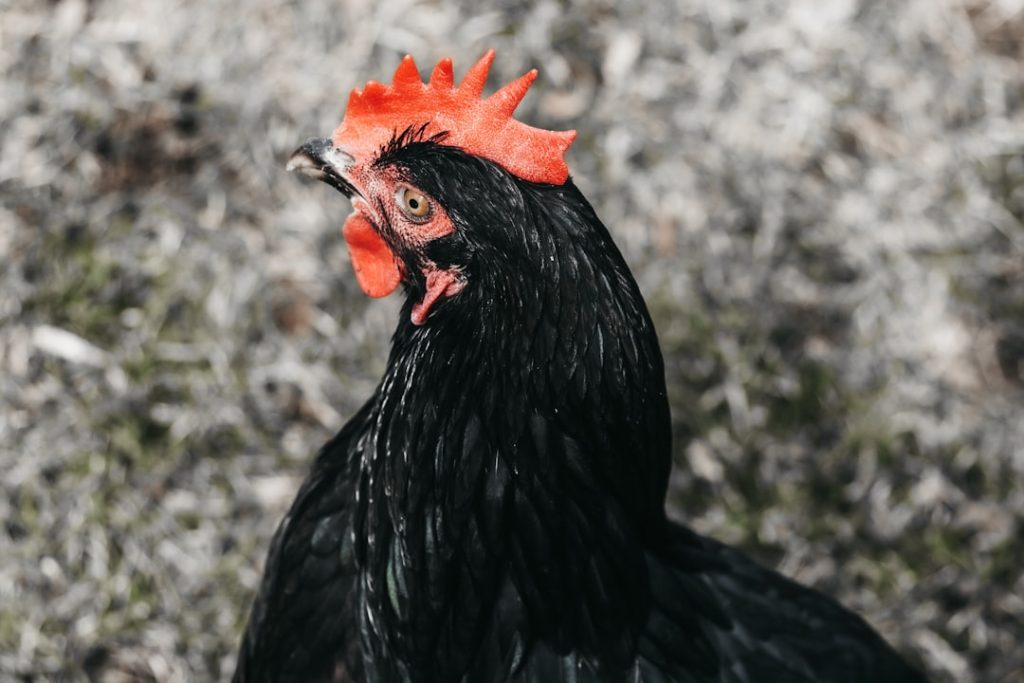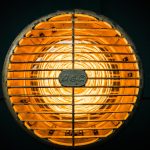When selecting a chicken breed for a backyard flock, several factors should be considered. Climate is a crucial consideration, as some breeds are better adapted to cold weather, while others thrive in warmer conditions. The purpose of the flock is also important; certain breeds are known for their egg-laying capabilities, while others are valued for meat production.
Temperament is another factor to consider, as some breeds are more docile and friendly, while others can be more aggressive. Available space is also relevant, as some breeds are better suited to confined areas, while others require more room to roam. After evaluating these factors, research can be conducted on specific breeds that meet the desired criteria.
Popular choices for backyard flocks include Rhode Island Red, Plymouth Rock, and Australorp, known for their hardiness, good egg production, and friendly dispositions. For colder climates, breeds like Orpington or Wyandotte may be suitable. In warmer regions, Leghorn or Sussex breeds might be appropriate.
The optimal breed choice depends on individual needs and preferences, necessitating thorough research and careful consideration.
Table of Contents
- 1 Building a Coop and Run
- 2 Providing Proper Nutrition and Water
- 3 Ensuring Proper Health Care
- 4 Managing Waste and Odor
- 5 Protecting from Predators
- 6 Integrating Chickens into Your Lifestyle
- 7 FAQs
- 7.1 What are the benefits of keeping chickens in my backyard?
- 7.2 What do I need to consider before keeping chickens in my backyard?
- 7.3 What kind of housing do chickens need in a backyard setting?
- 7.4 What do chickens eat and how do I provide for their nutritional needs?
- 7.5 How do I keep my backyard chickens healthy?
- 7.6 What are some common challenges of keeping chickens in a backyard?
Key Takeaways
- Consider the climate, space, and purpose for raising chickens when choosing the right breed
- Build a secure and spacious coop and run to provide shelter and protection for the chickens
- Provide a balanced diet, clean water, and appropriate supplements for optimal chicken health
- Regularly monitor and maintain the health of the chickens, including vaccinations and parasite control
- Implement proper waste management and odor control to keep the coop clean and hygienic
- Install predator-proof fencing and secure locks to protect the chickens from potential threats
- Integrate chickens into your daily routine and lifestyle to ensure their well-being and productivity
Building a Coop and Run
Coop Considerations
When building a coop, it’s essential to consider the size of your flock. Each chicken will need at least 2-3 square feet of space inside the coop, so be sure to build accordingly. Additionally, make sure the coop is well-ventilated and predator-proof. You’ll want to use sturdy materials like hardware cloth to keep out predators like raccoons and foxes.
Run Requirements
When it comes to building a run, you’ll want to provide at least 10 square feet of space per chicken. This will give them plenty of room to move around and engage in natural behaviors like dust bathing and foraging. Be sure to provide plenty of shade and shelter from the elements, as well as secure fencing to keep out predators.
Adding Enrichment Items
You may also want to consider adding some enrichment items like perches and dust bathing areas to keep your chickens happy and healthy. These additions can help reduce stress and boredom, leading to a more content and thriving flock.
Key Takeaways
Overall, the key to building a successful coop and run is to provide plenty of space, ventilation, and protection from predators. By following these guidelines, you can create a safe and happy home for your backyard chickens.
Providing Proper Nutrition and Water

Once your coop and run are set up, it’s important to think about providing proper nutrition and water for your flock. Chickens need a balanced diet that includes protein, carbohydrates, vitamins, and minerals in order to stay healthy and lay eggs regularly. A good quality commercial feed is a great place to start, but you may also want to supplement with kitchen scraps, grains, and greens to provide variety in their diet.
Additionally, be sure to provide access to clean, fresh water at all times. Chickens can drink a surprising amount of water, especially in hot weather, so be sure to check their waterers regularly and clean them out as needed. In addition to their regular diet, chickens also need access to grit and oyster shell.
Grit helps them digest their food properly, while oyster shell provides them with calcium to produce strong eggshells. You can provide these items free-choice in a separate feeder so that your chickens can help themselves as needed. Finally, consider adding some natural supplements like apple cider vinegar or garlic to their water to support their immune systems and overall health.
By providing a balanced diet and access to clean water, you’ll be setting your flock up for success.
Ensuring Proper Health Care
Just like any other pet or livestock animal, chickens require proper health care in order to thrive. This includes regular check-ups, vaccinations, and parasite control. It’s a good idea to find a veterinarian who specializes in poultry care and have them perform an initial health check on your flock.
They can advise you on any vaccinations that may be necessary in your area, as well as provide guidance on parasite prevention and treatment. In addition to veterinary care, it’s important to keep an eye on your flock’s overall health on a day-to-day basis. This means checking for signs of illness or injury, monitoring their weight and egg production, and observing their behavior for any changes.
By staying vigilant and addressing any health concerns promptly, you can help prevent small issues from turning into larger problems. Finally, be sure to keep your coop and run clean and well-maintained to prevent the spread of disease. Regularly clean out bedding, remove droppings from the run, and disinfect feeders and waterers as needed.
By providing proper health care for your flock, you can help ensure that they live long and healthy lives.
Managing Waste and Odor
One of the challenges of keeping backyard chickens is managing their waste and controlling odor. Chickens produce a surprising amount of waste for their size, so it’s important to have a plan in place for managing it effectively. One way to do this is by using deep litter in your coop.
This involves adding a thick layer of bedding material like straw or wood shavings to the floor of the coop and allowing it to compost over time. As the bedding breaks down, it helps absorb moisture and control odor, while also providing a comfortable surface for your chickens to walk on. In addition to using deep litter in the coop, it’s important to regularly clean out the run to prevent waste from building up and causing odor issues.
Consider using a rake or shovel to remove droppings from the ground, or use a movable chicken tractor to rotate your flock onto fresh pasture regularly. You can also consider composting your chicken waste to create nutrient-rich fertilizer for your garden or landscaping. By managing waste effectively, you can keep your coop and run clean and odor-free.
Protecting from Predators

Identifying Common Predators
Predators pose a significant threat to backyard chickens, and it’s essential to take steps to protect your flock from harm. Common predators include raccoons, foxes, hawks, and even neighborhood dogs or cats.
Securing Your Coop and Run
One of the best ways to protect your flock is by building a secure coop and run with sturdy fencing and predator-proof latches on doors and windows. Additionally, consider adding hardware cloth or welded wire mesh around the perimeter of the run to prevent digging or chewing predators from gaining access.
Vigilance and Additional Measures
In addition to securing your coop and run, it’s important to be vigilant about predator activity in your area. Keep an eye out for signs of predators like tracks or scat near your property, and consider installing motion-activated lights or sound deterrents to scare off potential threats. You may also want to consider getting a livestock guardian animal like a dog or even a pair of geese to help protect your flock from predators. By taking proactive measures to protect your flock from predators, you can help ensure their safety and well-being.
Integrating Chickens into Your Lifestyle
Finally, once you’ve established your backyard flock, it’s important to think about how they fit into your lifestyle. Chickens require daily care and attention, including feeding, watering, collecting eggs, and cleaning out their living quarters. Consider how these tasks will fit into your daily routine and make adjustments as needed.
Additionally, think about how you’ll handle things like vacations or travel that may take you away from home for extended periods of time. In addition to daily care tasks, consider how you’ll integrate your chickens into other aspects of your life. For example, you may want to involve your children in caring for the chickens as a way of teaching them responsibility and animal husbandry skills.
You may also want to consider using chicken manure as fertilizer for your garden or incorporating fresh eggs into your cooking and baking routines. By finding ways to integrate your chickens into your lifestyle, you can make the most of your backyard flock and enjoy all the benefits they have to offer. In conclusion, keeping backyard chickens can be a rewarding experience that provides fresh eggs, natural pest control, and a connection to the natural world.
By choosing the right breed of chicken, building a suitable coop and run, providing proper nutrition and water, ensuring proper health care, managing waste and odor effectively, protecting from predators, and integrating chickens into your lifestyle, you can create a thriving flock that brings joy and fulfillment to your life. With careful planning and attention to detail, you can enjoy all the benefits of keeping backyard chickens while providing them with a safe and comfortable home.
If you’re interested in learning more about how to keep chickens in your backyard, you might also want to check out this article on Producers Pride Sentinel Chicken Coop. This article provides valuable information on a specific type of coop that can help you keep your chickens safe and comfortable.
FAQs
What are the benefits of keeping chickens in my backyard?
Keeping chickens in your backyard can provide you with a sustainable source of fresh eggs, natural pest control, and fertilizer for your garden. They also make great pets and can be a source of entertainment and education for children.
What do I need to consider before keeping chickens in my backyard?
Before keeping chickens in your backyard, you need to check local regulations and zoning laws, consider the space and housing requirements for the chickens, and ensure that you have the time and resources to care for them properly.
What kind of housing do chickens need in a backyard setting?
Chickens need a secure and predator-proof coop for roosting and laying eggs, as well as a run or fenced area for exercise and foraging. The coop should provide protection from the elements and have proper ventilation.
What do chickens eat and how do I provide for their nutritional needs?
Chickens need a balanced diet of grains, protein, vitamins, and minerals. You can provide commercial chicken feed, as well as kitchen scraps, fruits, vegetables, and access to insects and plants in the backyard.
How do I keep my backyard chickens healthy?
To keep your backyard chickens healthy, you should provide clean water, a balanced diet, regular access to fresh air and sunlight, and proper veterinary care. You should also practice good hygiene and cleanliness in the coop and run.
What are some common challenges of keeping chickens in a backyard?
Common challenges of keeping chickens in a backyard include predator attacks, disease and parasites, noise and odor, and municipal regulations. It’s important to be prepared for these challenges and take proactive measures to address them.
Meet Walter, the feathered-friend fanatic of Florida! Nestled in the sunshine state, Walter struts through life with his feathered companions, clucking his way to happiness. With a coop that’s fancier than a five-star hotel, he’s the Don Juan of the chicken world. When he’s not teaching his hens to do the cha-cha, you’ll find him in a heated debate with his prized rooster, Sir Clucks-a-Lot. Walter’s poultry passion is no yolk; he’s the sunny-side-up guy you never knew you needed in your flock of friends!







